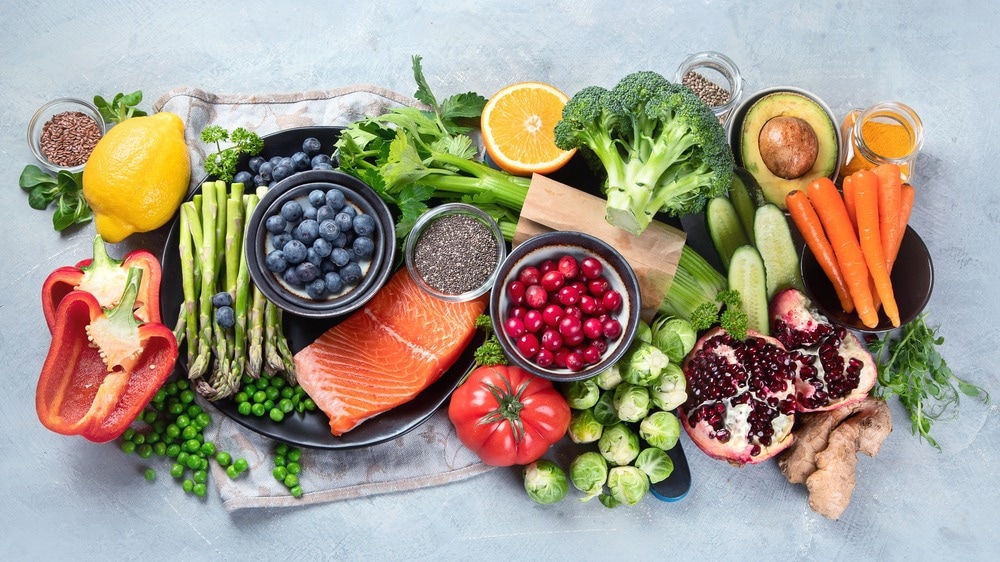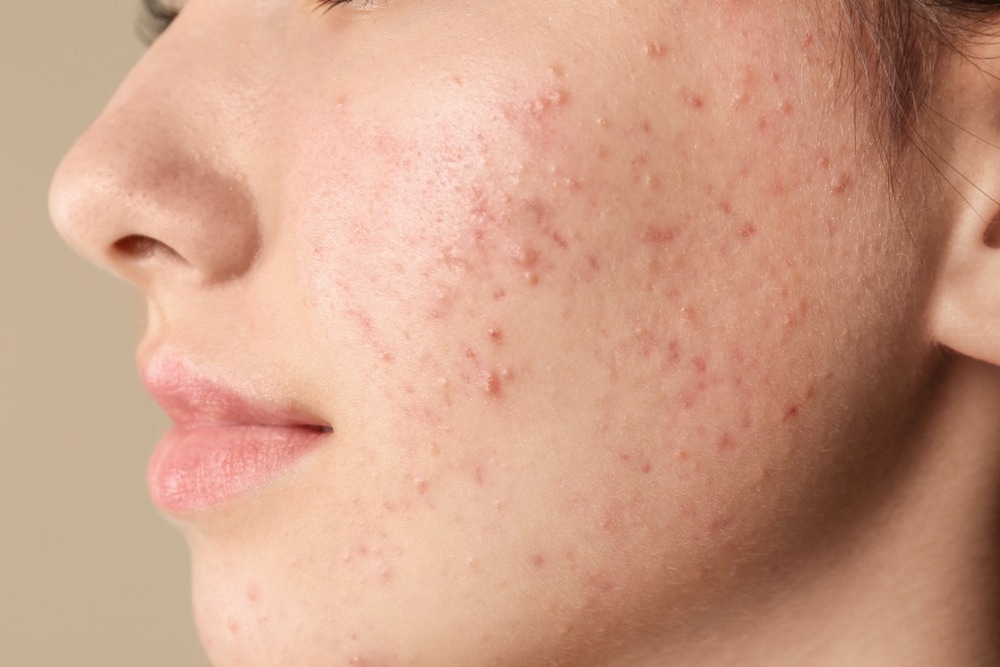
Importance of healthy food
Effects of diet on skin health
Role of nutrition in various skin diseases
skin cancer
Aged skin
young love
Psoriasis
Recommendations for future research
Link
additional reading
Dietary modifications have not received much attention in general dermatology. However, recent studies have revealed a strong link between various diseases and food.
Diet therapy may be recommended for acne. Changing your diet can help prevent skin conditions such as skin aging, acne, psoriasis and skin cancer.

Importance of healthy food
According to a growing body of research, dietary changes can work as part of the treatment for a variety of skin conditions. This category includes conditions such as rosacea, acne, psoriasis, aging skin and atopic dermatitis.
Some substances, foods or dietary patterns may act as "triggers" for disease, while others may be beneficial. Avoiding certain foods may be helpful in some cases, although testing may be recommended first.
A diet that favors the consumption of whole foods rather than highly processed foods can undoubtedly treat some skin conditions and prevent related diseases.
Effects of diet on skin health
Skin health is closely related to nutrition, which is responsible for all biological processes affecting the skin, including aging and disease. Both eating patterns and nutritional status can affect skin repair and damage.
In recent years, many people have associated healthy eating habits with skin health.
Additionally, clinical and epidemiological studies have successfully linked nutrition to tissue and organ health, demonstrating that nutritional status and diet affect skin health and aging.
Role of nutrition in various skin diseases
Chemical substances in food are known as nutrients. Nutrient-rich foods are important for building and maintaining body organs, supporting many metabolic processes, and generating energy.

With adequate nutrition, the skin and skin layers function properly. Any nutritional imbalance including nutritional deficiencies, nutrient deficiencies, excesses, and toxins can cause skin imbalances.
Many vitamin, mineral and fatty acid deficiencies can cause significant skin symptoms. Skin diseases can lead to metabolic disorders and nutritional deficiencies.
skin cancer
Non-melanoma skin cancer (NMSC) is the most common malignancy in the United States and is the first cancer diagnosis for many people. Several studies have shown that a diet rich in fruits and vegetables can reduce the risk of cancer.
Dietary factors significantly reduce the risk of cancer, especially cancer caused by ultraviolet radiation.
However, the use of dietary antioxidants and phytochemicals in whole foods, especially in the form of fruits and vegetables, is promising and should be encouraged. The well-documented health benefits of a plant-based diet, such as reduced risk of various cancers, support this strategy.
Aged skin
Changes in collagen and elastic skin fibers that are damaged by eating are associated with skin tightening and loss of elasticity. In particular, sugar consumption can accelerate these signs of aging, as it promotes the bonding of collagen fibers.
Glycation is the process responsible for cross-linking. During this process, covalent bonds are formed between the amino acids of the skin's collagen and elastin.
These amino acids bind to glucose and fructose to form advanced glycation end products (AGEs).
High blood sugar speeds up this process. Research shows that when these compounds are formed, the body cannot regenerate them. The accumulation of age-related factors can cause structural changes in the skin, resulting in increased strength and decreased elasticity.
Several studies have also focused on foods that may limit the formation of these AGEs. These include herbs and spices such as thyme, cinnamon, cloves, ginger and garlic, as well as chemicals such as lipoic acid, which occurs naturally in some fruits and vegetables.
young love
Although research examining the relationship between diet and acne is limited, there is evidence that diet plays a role in acne treatment and management. Based on many studies, there is a lot of evidence for the involvement of dairy products and high glycemic index diet in hormonal changes and acne control.

Regular use of omega-3 fatty acids, low and low glycemic index foods can significantly reduce the number of acne.
Recent studies on the effects of probiotic supplements on acne sufferers have shown promising results. However, more research is needed to confirm these preliminary findings.
Psoriasis
Psoriasis is an inflammatory disease that is aggravated by food. Food sensitivities or a diet with an unbalanced ratio of omega-6 to omega-3 fatty acids can be part of a low-glycemic diet.
A gluten-free diet can help many psoriasis patients whose symptoms are more sensitive to gluten. Psoriasis patients are advised to follow a low calorie diet with low protein content.
The beneficial effects of a low-calorie diet are thought to be secondary to changes in polyunsaturated fatty acids that alter eicosanoid profiles, including prostaglandins and thromboxanes.
Psoriasis symptoms are alleviated due to a decrease in total protein content, which inhibits the growth of the epithelium and reduces the amount of polyamines.
Recommendations for future research
Malnutrition is associated with various skin diseases. Recently, the relationship between diet and health has become the subject of much research. Poor nutrition, excessive alcohol consumption, and metabolic problems lead to diet-related skin diseases.
Anecdotal or theoretical evidence suggests that certain dietary habits can help prevent the recurrence of many skin problems. However, more research is needed to understand how the nutrient combination works in the body when taken in food and as a supplement. A distinction needs to be made between an effective and a toxic dose of dietary supplements.
Link
- Katta, R. and Desai, SP, 2014. Nutrition and Dermatology: The Role of Nutritional Interventions in Skin Diseases. Journal of Dermatology and Aesthetics , 7 (7), p. 46.
- Cao, C., Xiao, Z., Wu, Y., & Ge, C., 2020. Diet and skin aging: a nutritional perspective. Materials , 12 (3), p. 870. doi: 10.3390/nu 12030870
- Basavaraj, KH, Simandini, C. and Rashmi, R., 2010. Dermatology Nutrition: Contemporary Perspectives. Indian Journal of Dermatology , 55 (3), p. 205. doi: 10.4103/0019-5154.70662
- Baldwin, H. and Tan, J., 2021. Dietary effects and treatment response on acne vulgaris. American Journal of Clinical Dermatology , 22 , p. 55-65. doi: 10.1007/s40257-020-00542-y

